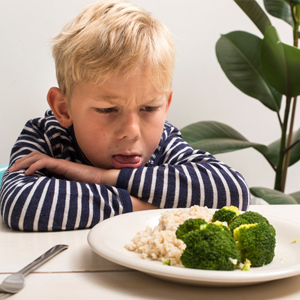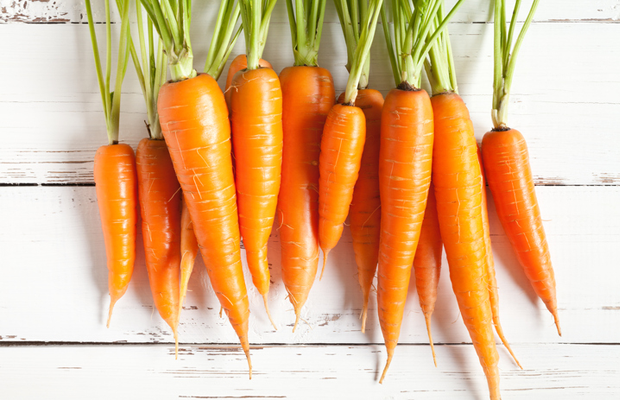
As children we’re picky eaters. Food that looks or smells funny? There’s no way we’d put it in our mouths. But after some parent-pressure, maybe you gave in and ate all those greens, even though they tasted terrible.
Years later, most of us still believe the things our parents told us. This often affects what and how we eat. While your parents were trying to do something good, most reasons they gave you for eating your food weren’t actually based on fact. We break down all those dinner table myths.
Read more: Doctor’s orders: These are the 7 foods doctors prescribe for your health
1. ‘Eat your greens, they’re good for you’
For those of you still avoiding green veggies, it might be time to stop. They’re great sources of nutrition. According to the United States Department of Agriculture, dark leafy green vegetables such as spinach and kale are rich in vitamins A, C, E and K, whereas broccoli is rich with the various vitamin Bs.
These vegetables also contain high doses of fibre, potassium, magnesium and calcium. They’re also a good source of folate, a vitamin that aids in prevent certain birth defects and making sure your heart stays healthy. It’s also shown to contain antioxidants which help cells duplicate and repair, as well protects you from developing cancer.
Verdict: With all these health benefits, fill up your plate with greens.
Read more: The carnivore’s guide to vegetables
2. ‘Carrots will give you night vision’
During WWII the UK Ministry of Food spread propaganda saying the pilot’s in the Royal Air Force were successfully shooting down Nazi planes because they ate carrots. Carrots were said to help them see better at night. In reality, the RAF had introduced radar technologies to their planes, but the propaganda was so pervasive that many people increased their consumption of carrots. Even today parents believe this myth.
Carrots, however, aren’t without merit. They contain beta-carotene and vitamin A, which reduces the risk of cataracts and macular degeneration. But for you, emulate Bugs Bunny and begin snacking on the veg, know the amount of beta-carotene and vitamin A needed to improve your eyesight is higher than you’d get from simply eating carrots.
You’re better off getting the vitamin in tablet form. Another concern is that consuming too much of the vitamin could be toxic and cause your skin to turn yellow or orange. Your best bet is to consult with a nutritionist or dietician before making it your go-to snack.
Verdict: Keep eating your carrots, but if your eyesight is weakening, you’re better off getting a pair of glasses.
Read more: Everything you need to know about the vitamins and minerals you need and how to get them

3. ‘Drinking milk will make your bones strong’
Milk contains a very important ingredient for strong bones and teeth: Calcium. The mineral not only strengthens them, but also regulates the heart rhythm and prevents blood clots. The best source of calcium is milk and other dairy products. Which is why Discovery Health recommends that from age nine, individuals consume three cups of milk a day.
However, a study conducted in Sweden found that men who drank three or more cups of milk a day were more likely to die younger than those who drank less. Researchers said this was a result of D-galactose, a sugar found in milk. Increased consumption of the sugar was associated with cardiovascular disease, cancer, bone loss and muscle loss.
Does that mean you should stop drinking it? Not necessarily. Dietician Dr Gail Cresci from Cleveland Clinic says there is not enough evidence for us to completely restrict our consumption of milk. She says more research is needed to determine whether the study’s findings were a result of a lack of vitamin D (which aids calcium absorption), or if the participants were already at a risk of osteoporosis before the study was conducted.
However, she cautions against consuming too much milk. Instead, she recommends drinking only a glass per day and getting the rest of your calcium intake from leafy green vegetables, soy beans, sardines and salmon.
The verdict: Milk is good for your bones, but too much of a good thing could be bad for you.
Read more: 3 supplements that you really need in your diet, and 3 that are just wasting your money
4. ‘Breakfast is the most important meal of the day’
For most of us, our childhood memories of preparing for school consisted of eating breakfast. Our parents insisted it was the most important meal of the day.
Breakfast is important for your overall sense of health. One study indicated that North American men who didn’t eat breakfast regularly, were at a 27% higher risk of developing coronary heart disease than those who ate breakfast every day.
For those with weight-loss goals, a study published in the Journal of Nutrition found that those who ate their largest meal for breakfast were more likely to lose a significant amount of weight. It also showed that breakfast eaters were more likely to be at a healthy weight than those who skipped the first meal of the day.
Meanwhile, a study in the journal Obesity suggests that those who eat breakfast were more likely to see a decrease in belly fat, hunger cravings and fasting blood sugar levels, which is used to test for diabetes.
It’s important to note, however, that what you eat is just as important as when you eat. Researchers found that eating a well-balanced meal first thing in the morning was integral to weight loss. Whereas those eating sugary breakfast cereals weren’t likely to reap the same benefits.
Verdict: Make sure the first meal you eat is well-balanced.
Read more: Eat 3 servings of this a week to cut your diabetes risk by 35%

5. ‘Eat until you’ve cleaned your plate’
As a kid, leaving the table without finishing your supper, was impossible. Our parents often made us sit there until the last morsel was consumed.
But while your parents had good intentions, this habit can be harmful and lead to overeating. Your parents most likely made sure you consumed all the nutrients you needed by piling your plate with veggies. Now that you’re dishing up for yourself, this might not always be the case.
When you use a clean plate as a signal for you to stop eating, it ignores the internal cues to tell you you’re full. This leads to a cycle of continuous overeating, which can lead to weight gain. It also hinders all weight-loss attempts.
Use a smaller plate or dish up smaller portions. If you’re at a restaurant with no control over your portion size and don’t want to be wasteful, get a take-away bag, finishing it off when you’re hungry again.
Verdict: Pay attention close attention to your hunger levels and stop eating when you’re full.
Read more: The 12 best foods to eat when you hit a weight-loss plateau
This article was originally published on www.mh.co.za
Image credit: iStock




 Publications
Publications
 Partners
Partners














